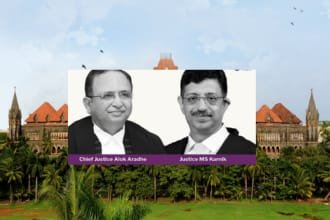In a landmark judgment aimed at protecting the pensionary rights of government employees, the Supreme Court of India has held that the contractual period of service must be counted for pension benefits once the employee is regularized. The decision was rendered in the case of S.D. Jayaprakash and Ors. v. Union of India & Ors., and is poised to impact thousands of similarly placed government employees across India.
Background: Dispute Over Contractual Service and Pension Eligibility
The appellants in the case were initially appointed on a contractual basis and were later regularized in government service. However, when it came time to compute their pensionary benefits, the Government of India denied credit for their pre-regularization service period, citing Rule 2(g) of the Central Civil Services (Pension) Rules, 1972. According to this rule, only regular service counts for pension eligibility, effectively excluding years of contractual work.
Challenging this interpretation, the appellants moved the Supreme Court seeking recognition of their entire service period, including the contractual tenure, for the purpose of pension calculations.
The Supreme Court’s Ruling: Rule 17 Overrides Rule 2(g)
The Division Bench comprising Justices P.S. Narasimha and Joymalya Bagchi delivered a significant ruling clarifying the scope of the CCS (Pension) Rules, 1972. The Court held that once an employee is regularized, their prior service as a contractual employee must be counted towards pensionary benefits.
The Court categorically stated:
“The effect is that upon regularisation, the Pension Rules become applicable and Rule 17 requires that past service as a contractual employee is to be taken into account for calculating pension.”
The ruling effectively nullifies the restrictive application of Rule 2(g) and affirms that Rule 17, which permits the counting of past service for pension purposes, should take precedence.
Precedent from Sheela Devi Case
The Court also relied heavily on its earlier decision in State of Himachal Pradesh & Ors. v. Sheela Devi [(2023) SCC OnLine SC 1272]. In that case, the Court had already interpreted Rule 17 as a beneficial provision introduced specifically to cater to situations where contractual employees are later regularized.
The judgment in Sheela Devi had emphasized:
“It is only for the purposes of pension that the past service as a contractual employee is to be taken into account.”
The Supreme Court in S.D. Jayaprakash reaffirmed this principle and expanded its applicability to a broader group of government employees working under similar service conditions.
Government’s Obligations Post-Judgment
In a direct consequence of the ruling, the Supreme Court allowed the appeal and directed the Union of India to:
- Take immediate steps to enable the appellants to exercise their option under Rule 17 of the CCS Pension Rules.
- Notify the amounts payable, if any, by the appellants in order to be eligible for pension under these rules.
This direction puts the onus on the government to create a clear, transparent, and actionable framework for extending pensionary benefits to all eligible regularized employees.
Implications for Government Employees
This ruling is a game-changer for government employees who have rendered several years of contractual service before regularization. Key implications include:
- Recognition of Total Service: Employees will receive pension benefits for their entire duration of service, not just the regularized portion.
- Financial Security: This will significantly improve the post-retirement financial security of thousands of employees across sectors like education, health, and administration.
- Clarification of Rules: It resolves long-standing ambiguity around the interplay of Rule 2(g) and Rule 17 in pension calculations.
- Policy Reform: The judgment may also push the government to amend or update outdated service rules that do not reflect the modern employment structures involving contractual hiring.
Key Legal Takeaways
- Rule 17 of CCS (Pension) Rules, 1972 overrides the general exclusion clause under Rule 2(g).
- Regularization triggers pension eligibility for the entire service period.
- Judicial affirmation of the principle that beneficial provisions in service law must be interpreted in favor of employees.
Case Details
- *Case Title: *S.D. Jayaprakash and Ors. v. Union of India & Ors.
- Citation: 2025 LiveLaw (SC) 506
- Coram: Justice P.S. Narasimha and Justice Joymalya Bagchi
- Judgment Date: April 30, 2025
Advocates Representing the Parties
- For Petitioners: Senior Advocate M.C. Dhingra, along with Mr. C.B. Gururaj, Mr. Animesh Dubey, Mr. Shashank Singh, Mr. Surendra Gautam, and others.
- For Respondents: Mr. K.M. Nataraj (ASG), Mr. Vatsal Joshi (Arguing Counsel), and team.
Conclusion
The Supreme Court’s judgment in S.D. Jayaprakash is a landmark affirmation of employee rights under the Central Civil Services (Pension) Rules. It ensures that the years of contractual service are not discarded simply due to technical classification, but are acknowledged and rewarded in the same manner as regular service. This ruling aligns with principles of equity, fairness, and social justice and marks a positive step toward improving public sector employment conditions in India.
As government employment increasingly begins with temporary or contractual appointments, this ruling will likely have far-reaching effects on pension jurisprudence and public sector HR policy in the years to come.


